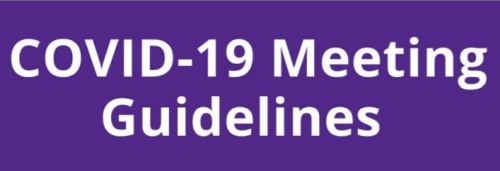March 11, 2021
Guidance for Extension Programming in Light of University Summer Youth Programming Announcement

As extension professionals, you are valued members of the overall K-State community. Your leadership and guidance are what makes Kansas State University such a valued resource to the citizens of Kansas and beyond. We are all a community of educators who personify our mission as a land-grant university. During these difficult times, we need to work to give our youth and families experiences of the highest quality while mitigating health and safety risks.
As we look forward to reopening and further reestablishing our in-person work throughout the state, clarity regarding the steps we can take – and those we must take – has proven challenging because of the different entities that have jurisdiction over our work. This article is intended to bring more clarity to our current status.
On Feb. 23, 2021, K-State shared guidance for summer 2021 programs (click for link):
“Kansas State University continues a phased approach for resuming operations. The phases align with national and local requirements and guidance. The university is currently in Reopening Phase 3.
As part of the reopening process, the university will allow in-person, hybrid and virtual programs for summer 2021. This includes programs for visitors and youth-serving programs.
The university has established guidance for program directors for managing the COVID-19 virus risk during planning and hosting summer programs. Program directors will develop and submit plans for approval.
All academic and non-academic programs held during summer 2021, including programs sponsored by university colleges, departments, extension and administrative units, third parties and K-State Athletics, must develop a COVID-19 safety and risk mitigation plan and follow other steps of the approval process.
The university’s risk and compliance officer will review and approve all summer programs. Approval is conditional and based on the current status of the pandemic.
Learn more about the guidance for managing COVID-19 for summer programs.
What does this mean for extension professionals and programming for the duration of the semester and in preparation for the summer?
On March 2, 2021, university risk-management staff approved extension administration's continued use of the following processes:
- Following extension COVID-19 communications and protocols for activities are found here: https://www.ksre.kstate.edu/employee_resources/covid-19/covid19.html
- Use of the Face to Face Meeting Necessity Form for all face-to-face spring and summer activities (https://kstate.qualtrics.com/jfe/form/SV_9RVQJ6oUBwUByfP) – This is reflective of our present submission-for-approval process.
- Specifically, this form is to guide program preparations and planning: https://www.ksre.k-state.edu/employee_resources/covid-19/safe-events.pdf
- Default to the local health authority directives when considering group size limits
It is understandable that there are programs and projects where face-to-face engagement is the only accepted means of engagement for practical or programmatic rules perspectives (shooting sports, YLQA, sewing, among others). In situations like these, face-to-face will be the accepted method of engagement, but they must comply to our masking, sanitizing, and social distancing guidelines. The foundation of this guidance has been in place for extension programs since July 4, 2020. The face-to-face meeting necessity form, which has been in place since the first week of December, ensures extension’s ability to review face-to-face programming processes considering current COVID-19 protocols from Kansas State University.
Until Kansas State University administration directs otherwise, extension programs will continue to be conducted with the submission process outlined above. Below is a review of the directives intended to guide our planning:
KSRE professionals and volunteers should consider the needs of their audience and make reasonable adjustments to programming to best engage learners with these guidelines. Realizing that Extension clientele will have various levels of comfort with being in face-to-face situations during a pandemic outbreak, no participant should be asked to participate in any manner that makes them feel uncomfortable or is unsafe.
Then consider:
- Can the program be offered using a virtual platform?
- Are there participation options for families interested participating but concerned about the health/safety of their family?
- What precautions are you taking to minimize the participants’ risk of exposure to COVID-19?
- Are all local public health guidelines being followed? Check with your local health authority.
(taken from https://www.ksre.k-state.edu/employee_resources/covid-19/safe-events.pdf)
Please keep in mind that the emphasis for these directives is to engage as many learners in extension programs as possible, not look for reasons to exclude learners from participation.
As we plan to bring youth and volunteers back to more in-person events and look forward to summertime, our intent is for everyone to be as thoughtful and considerate about offering opportunities to participate as safely as they feel comfortable doing so.
The pandemic has not ended, so we must continue to put safety and science in the front seat. If you’re planning a live event, make sure everyone is masked, using sanitizer, and properly distanced. Also make sure you’ve given thought to how participants can engage virtually. These forms and processes are in place to ensure that we are all following through, with system-wide professionalism and fidelity, to manage risks responsibly while moving toward the goal of fully open, in-person engagement.
It’s not a difficult process, but it’s also not as easy as we all wish it were. The bottom line is that it’s a necessary process, and we’re a lot closer to the end than the beginning.